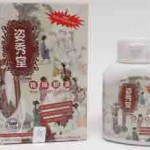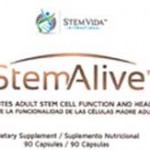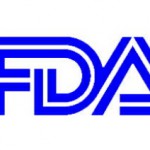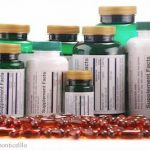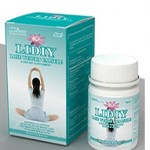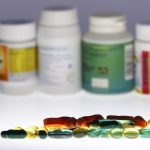Zi Xiu Tang Bee Pollen, a product marketed for weight loss and body shaping, contains one or more harmful pharmaceutical ingredients not listed on the label and should not be taken by consumers, the U.S. Food and Drug Administration (FDA) is warning. The FDA has tested Zi Xiu Bee Pollen products from various distributors in the United States and all of them contain undeclared sibutramine or phenolphthalein which have both been banned for their harmful side effects. The FDA has received dozens of reports of adverse effects associated with the use of this product including heart palpitations, increased heart rate, increased blood pressure, chest pain, diarrhea, anxiety, insomnia, suicidal thoughts, and seizure. Consumers who have experienced negative side effects while taking this … [Read more...]
StemAlive Capsules Recalled for Undeclared Milk
Stemvida International Corporation of Ontario, CA is recalling StemAlive capsules sold in 90-count bottles because they contains undeclared milk. People with an allergy or severe sensitivity to milk should not consume this product as they run the risk of serious or life-threatening allergic reaction. The product was packaged in a white plastic bottle with white lid. The brand name StemVida International appears on the white and gold label. It was distributed to the following states: Arizona, California, Colorado, Florida, New Jersey, New York, Nevada, Oklahoma, Texas and Utah. No illnesses have been reported to date. The lot number and expiration date is printed in black ink at the bottom of the label. The products under recall have the following lot numbers and expiration dates: … [Read more...]
FDA Commissioner’s Take on Caffeine in Food and Supplements
How much caffeine should be allowed in food, beverages and supplements? In August 2013, the Institute of Medicine (IOM), an independent nonprofit organization, held a public workshop on that topic at the request of the U.S. Food and Drug Administration's (FDA). Today the IOM issued a 164-page summary about the workshop. The report does not make recommendations, but describes the risks associated with caffeine consumption and explores safe levels of consumption. The workshop was prompted by the sudden boom in caffeine-added products including gum, candy, snacks, energy drinks, supplements and bottled water. A safe level of caffeine has never been determined for those products. The only time the FDA has approved the use of added caffeine was for cola. That was in the 1950s. "In the … [Read more...]
Dietary Supplement Industry Largely Unregulated
There is a lot of confusion about the dietary supplement industry, what products they are allowed to sell, and how they are regulated. Before 1990, supplements were mainly just vitamins and minerals. Interest peaked in the early 1990s, and more manufacturers got into the business. Congress wanted to strengthen the FDA's enforcement powers over misleading claims and unscrupulous manufacturers. But in 1994, outfits such as Mercola and other supplement supporters got the Dietary Supplement Health and Education Act passed. It was heavily supported by the supplement industry. In addition, companies got consumers involved, telling them that the government was going to take away their supplements. That was a lie. A huge groundswell of public opinion helped get the Act passed. Dietary … [Read more...]
FDA: Tell Us If You’ve Been Injured By A Dietary Supplement
If you've been injured by a dietary supplement, the U.S. Food and Drug Administration (FDA) wants to know about. The agency announced today that it is now accepting online submissions of reports about adverse health events triggered by the use of dietary supplements. Both voluntary and mandatory reports can now be submitted online. To make a report, click here. According to the Dietary Supplement and Nonprescription Drug Consumer Protection Act, if a manufacturer, packer, or distributor's name appears on the label of a dietary supplement, the company must share with the FDA any reports of serious adverse events associated with the use of the product. There are more than 85,000 dietary supplements on the market. In terms of regulation, the FDA considers them food, not drugs and … [Read more...]
Buyer Beware: Supplements, Energy Drinks Don’t Need FDA Approval
Do you know what’s in that dietary or sports supplement you’re taking? Is that energy drink you bought at the checkout counter safe? Maybe not. Energy drinks and supplements, including those marketed as diet or sports aids, fall into the “food” category of products regulated by the U.S. Food and Drug Administration (FDA). Food producers aren’t required to provide the FDA with evidence of a product’s safety before selling it. And while food labels are supposed to accurately reflect ingredients and make no false claims about health benefits, some supplement makers skirt these rules causing dire health problems for the unsuspecting consumers who take them. Dietary supplements have been linked to cases of liver damage and death. In fact, a recent study by the Drug-Induced Liver Injury … [Read more...]
FDA Files Injunction Against Oregon Dietary Supplement Maker
The FDA has filed a permanent injunction against the dietary supplement manufacturer James G. Cole, Inc., after the company's "repeated distribution of unapproved drugs and adulterated dietary supplements in violation of the Federal Food, Drug, and Cosmetic Act." The company is based in Hood River, Oregon. Melinda K. Plaisier, the FDA's associate commissioner for regulatory affairs, said in a statement, "This company has ignored the multiple warnings they have been issued by the FDA by continuing to make unsubstantiated drug claims about the products it sells and by failing to conform to the cGMP requirements for dietary supplements." In addition, some of the supplements were not manufactured in accordance with the cGMP requirements for dietary supplements. The company has claimed … [Read more...]
Weight Loss Dietary Supplements Recalled for Unapproved New Drugs
B@B Trade of Florida is recalling all lots of Slim Fortune, Lidiy, and Slim Expert because they contain undeclared sibutramine, a previously controlled substance that was removed from the marketplace in 2010. Sibutramine substantially increases blood pressure and/or pulse rate in some patients and may present a significant health risk to those with a history of coronary artery disease, congestive heart failure, arrhythmias or stroke. The product can also interact in life-threatening ways with other medications. The recalled products are: Slim Fortune green capsules, 30 capsules per bottle; Lidiy green capsules, 30 capsules per bottle; and Slim Expert 30 softgels capsules per bottle. All are marketed as a natural herb for weight loss. They were sold directly to individual customers in … [Read more...]
Dietary Supplement Craze Contains Methamphetamine-like Drug
Consumer Reports says that the popular body-building supplement Craze contains a methamphetamine-like stimulant that has not been previously studied in humans. The study was published in the journal Drug Testing and Analysis. The study states that pharmaceuticals and banned substances have been detected in hundreds of so-called "natural" dietary supplements. Some athletes have failed drug tests when they unknowingly consumed banned substances that were in workout supplements. The study authors bought the product from American and European online retailers, and from a U.S. retail store. Two laboratories independently identified N,α-DEPE, a methamphetamine analog in the supplement. Lead author Dr. Pieter Cohen, of Harvard Medical School, said about the study, "what's particularly … [Read more...]
Consumers Union Endorses Dietary Supplement Labeling Act
Consumers Union is endorsing the Dietary Supplement Labeling Act sponsored by Senators Richard Durbin (D-IL) and Richard Blumenthal (D-CT). The Act would force manufacturers to register their supplements with the FDA and make sure that companies don't evade stricter safety rules by re-categorizing their products. A study conducted at St. Michael's Hospital last spring found that dietary supplements were responsible for more than half of the Class 1 drugs recalled by the FDA from 2004 to 2012. Almost one-fourth of the recalled supplements are manufactured outside the United States. Between 2007 and mid-April 2012, there were more than 6,300 reports of serious adverse events associated with dietary supplements reported to the FDA. Issues included heart problems, allergic reactions, liver … [Read more...]
